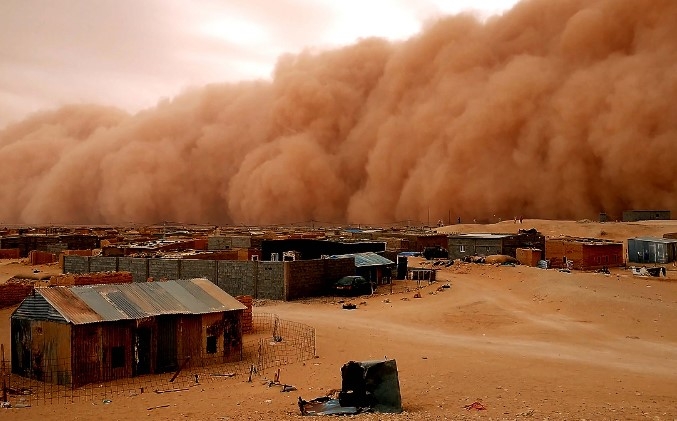Small scale family gardens started to emerge in the Sahrawi refugee camps in the Hamada Desert, southwest Algeria around 2002. Leading figures in the process are Sahrawi agricultural engineers and gardeners who have been researching and developing the garden practices together with the families. The theories and practices have become rulebased knowledge in the community.
Gardens and agricultural knowledge are starting to change the food production for Sahrawi refugee community where dependency on international aid has been the case since the arrival of the Sahrawi to the refugee camps in 1975. Earlier the Sahrawi were pastoralist nomads in Western Sahara. Phosphate mining is the reason for Sahrawi’s losing their nomadic way of life and phosphate has reshaped the Baltic Sea marine ecosystem over a half century. The phosphorus fertilizer made of the distant phosphate rock in Western Sahara has ended up to Baltic Sea as well.
The mined phosphate rock used for fertilizers in agriculture has increased the phosphorus fluxes to marine areas threefold. The excessive use of processed fertilizers on farms is causing eutrophication. It is most evident in the form of cyanobacteria blooms, especially in the summer, sometimes also as traces in the frozen sea. The algae get their nutrition from phosphate and nitrogen fertilizers. Finally algae will die in the sea. Dead algal blooms absorb oxygen from the water and sink to the bottom. This causes oxygen depletion in large areas of the Baltic Sea. Significant oxygen loss leads to death of fish and marine life.
In his film, DESERT PHOSfate, Mohamed Sleiman Labat is asking “What is a Sahrawi story?” How do the Sahrawi tell their stories? Where’s the beginning, the middle or the end of the story, If they ever use that structure at all? The nonlinear methods of telling a story largely weave their path through the story in a randomized manner. The methodology of randomness is not logical, it’s poetic and it’s unique.
It’ll be hard to recognize this kind of narrative because of the overwhelming flood of stories we get exposed to online; films and videos that are short, cut in a quick paced manner, overloaded with visual and audio effects all aiming at eating your mind up. There are different kind of stories in this world that don’t resemble Hollywood philosophy and the Western pace of life. Stories and methods that sooth and heal, stories that educate without attempting to convince or convert you into something else. They don’t want to play with your mind.
The exhibition has been supported by Kone Foundation, the Arts Promotion Centre Finland and Oskar Öflunds Stiftelse.




